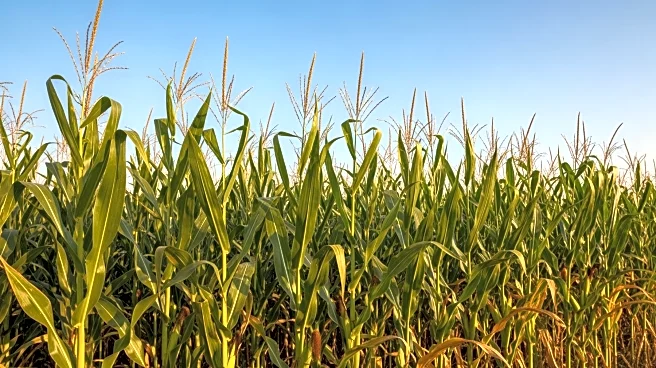What's Happening?
Biofuels, particularly ethanol and renewable diesel, are playing a crucial role in shaping the future of U.S. agriculture, especially for corn and soybeans. The Renewable Fuel Standard has significantly
influenced U.S. agriculture over the past two decades, boosting ethanol production and supporting both domestic consumption and export markets. The U.S. agricultural system is defined by the '4-Rs+1' framework: Reliable, Resilient, Resourceful, Redundant, and Regenerative, which ensures the adaptability and strength of the supply chain. This framework supports the growth of biofuels while meeting global demands for food and feed.
Why It's Important?
The integration of biofuels into U.S. agriculture has transformed the industry, creating new market opportunities and enhancing sustainability. Ethanol production has stabilized, allowing surplus corn supplies to support other markets, while renewable diesel has increased soybean oil production. This adaptability is crucial for maintaining the U.S.'s competitive edge in global markets. The focus on regenerative practices ensures long-term productivity and resilience against climate and market uncertainties, positioning U.S. agriculture as a leader in feeding and fueling the world.
What's Next?
The future of U.S. agriculture involves balancing biofuel production with food and feed demands. Investments in infrastructure, such as grain storage and transportation, are necessary to maintain supply chain efficiency. Sustainable practices like cover cropping and precision agriculture will be essential for continued growth and resilience. As global competition intensifies, U.S. farmers must leverage the '4-Rs+1' framework to remain competitive, ensuring that American agriculture continues to lead in global food security and energy markets.









